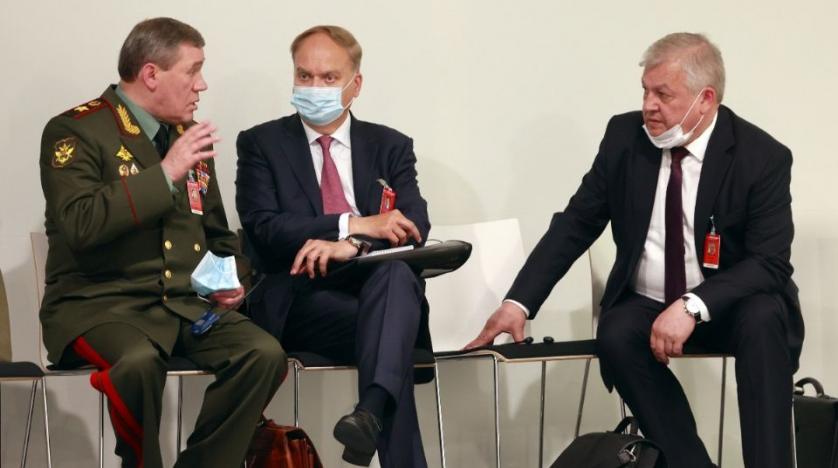US Secretary of State Antony Blinken will participate on June 28th in a Syria ministerial meeting to discuss the crisis in Syria and underscore the importance of meeting humanitarian needs. The Rome meeting will be the first event on Syria attended by the Biden administration. It will also be attended by 14 foreign ministers of the G7 and Arab and regional countries.
It is being held on the sidelines of a meeting of the Global Coalition to Defeat ISIS that will be co-chaired by Blinken and his Italian counterpart Luigi Di Maio.
Extended list
Blinken surprised officials when he suggested expanding the list of invitees to the ministerial meeting. The meeting was initially supposed to only be attended by members of the small group on Syria: the US, Britain, France, Germany, Saudi Arabia, Jordan, and Egypt. Blinken also invited the foreign ministers of the G7, as well as Turkey, Qatar, and the United Nations envoy to Syria, Geir Pedersen.
Notable absentees are Iran and Russia. Turkish Foreign Minister Mevlut Cavusoglu will be making his first appearance at such an event. Turkey, Russia, and Iran are the founders of the Astana peace process in Syria.
The Syria meeting is significant because not only will it be the first time the Biden administration tackles the war-torn country at a global event, but it is being held amid divisions in Washington over how to address the file, as Biden’s team is divided. First, some want to “wash their hands clean” of the crisis, lower expectations, and focus on humanitarian aspects of the conflict, the fight against ISIS, and the regime’s chemical weapons arsenal. This group believes that the Syria file is tied to other issues, especially the talks on the Iranian nuclear deal. On the other side of the divide are those who believe that the US should raise its rhetoric or at least maintain its moral obligations towards Syria by pressuring Moscow and Damascus in Syrian political and military files.
The Syria meeting is taking place less than two weeks after the landmark summit between Biden and his Russian counterpart Vladimir Putin in Geneva. The Syria file was set aside and talks over it were limited to “small understandings” on extending the cross-border aid resolution and maintaining the non-collision agreement between American and Russian forces in northeastern Syria. They also tackled cooperation in implementing UN Security Council resolution 2118 on Syria’s chemical weapons arsenal.
In recent months, the Biden administration had been sending signals to Moscow in the hope that it would pass the “American test” in agreeing to extend the UN resolution on cross-border aid and to also expand the access points from one to three. Aid is currently only being delivered through the Bab al-Hawa crossing on the Turkey border. Washington is hoping to open other points with Turkey and Iraq.
The signals Washington has sent include refraining from imposing sanctions on Syrian figures and entities, offering exemptions from sanctions to present medical and humanitarian supplies, helping in the fight against the coronavirus pandemic, and holding back from waging a campaign by senior officials against last month’s Syrian presidential elections.
Sanctions
Washington did also wave pressure cards against Moscow. It warned that it may resort to sanctions again should Russia use its veto against the extension of the cross-border aid resolution that expires in July. The Americans have also been in contact with European officials to ensure that they maintain a united front and avoid normalizing relations with Damascus. The Americans have also sent out similar messages to Arab countries to discourage them from making such an “unbeneficial” move.
Conditions and demands must be met before any step towards normalization is taken. This includes progress in the reform path and the Constitutional Committee, the release of political prisoners, allowing the voluntary and safe return of refugees, and committing to a nationwide ceasefire.
These messages were received at the latest Arab foreign ministers meeting last week as contrary to expectations, they did not delve into restoring Syria’s membership at the Arab League. When Iraqi Foreign Minister Fuad Hussein brought up the issue, he was met with generalities by some of the attendees.
The Rome meeting will perhaps serve as an opportunity for Blinken to set the pace of his allies in the G7 and the region. It will also be an opportunity to determine the Biden administration’s position on Syria ahead of America’s “test” to Russia at the Security Council to extend the cross-border resolution. Moreover, it will be an opportunity for Pedersen to present a detailed vision of his proposal: A new step-for-step approach between Moscow and its allies on the one hand and Washington and its allies on the other and the formation of an international-regional group composed of permanent Security Council members and regional players.
This article was edited by The Syrian Observer. The Syrian Observer has not verified the content of this story. Responsibility for the information and views set out in this article lies entirely with the author.


